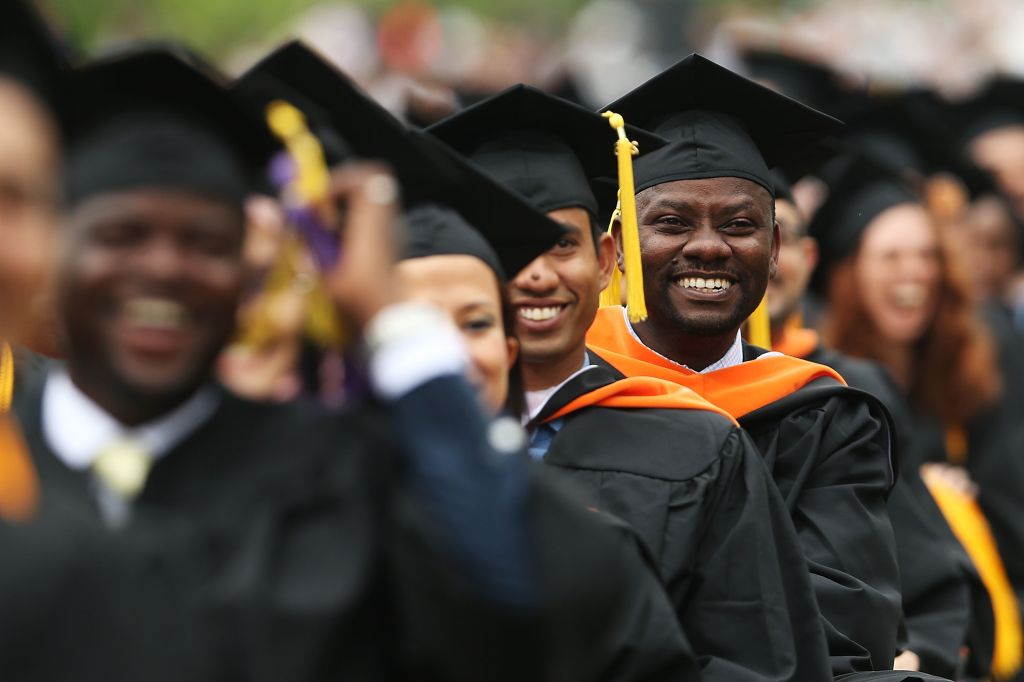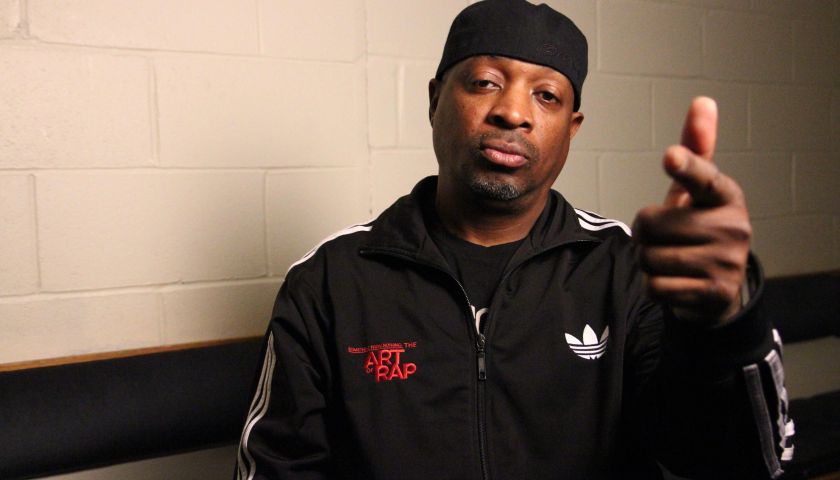Why We Need To Cancel Student Loan Debt
Here’s Why We Need To Cancel Student Loan Debt. Period.
If you spend even a little bit of time scrolling through Twitter these days, you’ve probably come across the phrase “cancel student debt.” It has become somewhat of a rallying cry, a way to bring people together behind the common cause of getting rid of the financial burden of student loans once and for all. And in a year that was filled with economic anxiety due to a pandemic, it really gained some traction.
“It’s a hot topic because it’s affecting more people and not just students of color,” says Jennifer Blatz, the president and CEO of StriveTogether, a nonprofit working in nearly 70 communities across the United States to help more than 12 million young people succeed in school and life.
According to The New York Times, the U.S. Department of Education is “effectively the country’s largest consumer bank and the primary lender, since 2010, for higher education.” To date, it owns student loans amounting to $1.4 trillion. Proponents of forgiveness argue that eliminating that debt, or at least part of it, would provide a much-needed boost to the flailing economy, especially as the pandemic rages on.
“The truth is, more people are struggling now due to the economic impact of the pandemic so the stakes are high for all students,” Blatz says. “This is an excellent opportunity for the largest lender, our federal government, to respond in an equitable manner. Loan forgiveness programs can address the widening racial inequities experienced by college graduates.”
Although student loan forgiveness is a universal issue, Black students often have to take out more loans than their White counterparts, due in part to systemic racism. That means the Black community, in particular, stands to benefit from the proposed policy if it were to be implemented under a Joe Biden-Kamala Harris administration.
“Studies show that Black students are more likely to take on student loan debt, and the differences in accrual and graduate school borrowing result in glaring disparities,” Blatz explains. “Black students hold almost twice as much debt four years after graduation than their white peers.”
Ahead, Blatz addresses some of the key issues surrounding the conversation about canceling student loan debt, and what people might be able to expect from the incoming administration.

Source: Spencer Platt / Getty
What would be some benefits of student loan forgiveness? How would forgiveness actually boost the economy and promote wealth equity?
For starters, it’s important to clarify that student loan debt forgiveness is not simply a cancellation of debts. It’s actually an investment in workers and the economy.
“Instead of devoting more discretionary income into paying student loans, borrowers can help stimulate the economy through saving and investing,” Blatz says. “A 2018 paper from the Levy Economic Institute of Bard College, using 2016 data, showed that a one-time cancellation of $1.4 trillion outstanding student loan debt would translate to an increase of up to $108 billion per year to the GDP. Additionally, it would help narrow the racial wealth gap since Black students owe $7,400 more on average than their White peers after graduating while earning less, per the Brookings Institution.”
Will the incoming Biden-Harris administration enact student loan forgiveness?
There’s no predicting the future, but if the incoming administration wants to get serious in addressing real-time threats to the nation’s economic viability and reducing the racial wealth gap, then canceling student loan debt is going to be a solid starting point.
“I am confident that this will be one of the tools to do so because its impact is immediate and measurable,” Blatz says. “Education is a fundamental driver of national development, and is more sustainable than capital investments into machinery or buildings.”
What would a potential student loan forgiveness policy (or policies) look like?
So far, Biden has talked publicly about the need to include debt forgiveness as part of a federal economic stimulus package so that families don’t have to choose between paying their student loan debt or paying their rent. At the moment, Biden wants to offer $10,000 in student loan cancellation for borrowers who qualify. However, some Democrats have been sharing proposals for debt forgiveness that would be more wide-ranging.
“Others in Congress are calling for an expansion of that number and would like to see $50,000 of student loans canceled per borrower,” Blatz says. “The policy could be enacted through income-driven repayment plans to lower monthly repayments, the cancellation of student loans in bankruptcy, a reform to the public service loan forgiveness program, or free/reduced tuition from public colleges and universities.”
Last November, for instance, Senator Chuck Schumer, the Democratic minority leader, said that he and Senator Elizabeth Warren had drafted a proposal to eliminate the first $50,000 of student loan debt, and suggested that Biden could accomplish that via executive action within his first 100 days in office.
“Given that student loan debt is the most significant debt that Americans have, and given how so many Americans are struggling in this economy, the Biden-Harris administration must prioritize this issue as a critical education and economic issue,” Blatz says.

Source: NurPhoto / Getty
How can canceling student loan debt help me?
Anytime a debt goes away, it provides some degree of relief. But when it comes to student loans, getting rid of some — or even all — of it is merely the first step on a long path of working toward equity.
“Student loan forgiveness is an important step in addressing larger economic problems, but it is only a temporary solution,” Blatz explains. “To create sustainable and scalable change, our country needs to address the root causes of economic inequality and higher education.”
With more young people going to college now than ever before, the reality — and burden — of student loan debt isn’t going anywhere. The time to address this growing problem is right now.
“As the costs of college have sharply increased, government funding for education has drastically fallen,” Blatz says. “We have found that an investment into civic infrastructure, from cradle to career, is what allows communities to thrive in an equitable and sustainable manner. We’ve seen examples of it working across the country, and it is well past time to be investing into families through a comprehensive student loan forgiveness plan.”
SEE ALSO:
Why Black Student Loan Debt Should Be An Issue For All Of Us
#FreeGame: What You Need To Know About The Viral Post On Student Loan Payments
Black Philanthropy And Its Effect On The Black Student Debt Crisis
















